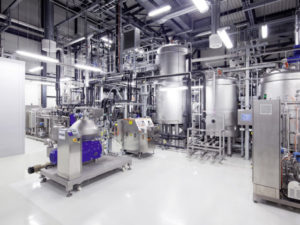Audi makes breakthrough in e-gas production
Audi says it is convinced of the potential of e-gas, “e-benzin” (e-gasoline) and e-diesel fuels.
The fuels are said to help reduce exhaust CO2 emissions by up to 80%, for example in its g-tron models.
Audi believes it has now achieved an important intermediate goal with synthetic “e-benzin” (e-gasoline) and has produced a sufficient quantity of regeneratively produced fuel for initial engine tests.
Reiner Mangold, head of sustainable product development at Audi AG, said: “Like all Audi e-fuels, the new fuel has many advantages. It isn’t dependent on crude oil, it is compatible with the existing infrastructure and it offers the prospect of a closed carbon cycle.”
The synthetic fuel is currently produced using biomass in a two-step process, which Audi hopes to move away from as it looks to renewable sources of hydrogen. The fuel is free of sulphur and benzene and is therefore especially low in pollutants when it burns, as well as exhibiting anti-knock properties, which is beneficial to fuel economy.
Audi e-diesel is also part of the Audi e-fuels portfolio. Audi is currently planning production capacity in Laufenburg, Switzerland. A new pilot plant will produce around 400,000 litres of Audi e-diesel per year. For the first time ever, hydroelectric power is the sole energy supply required for this.


